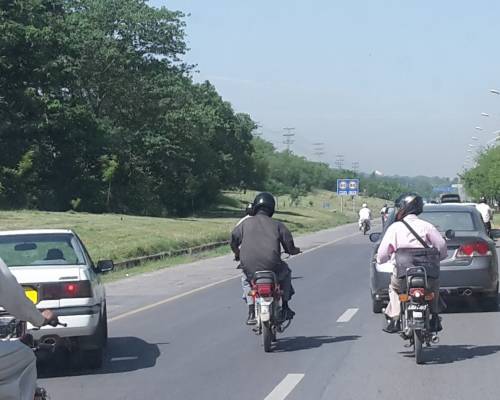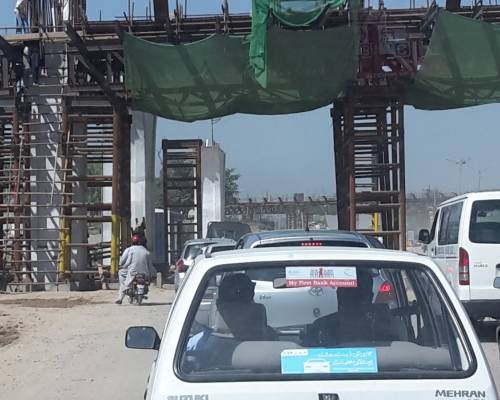Pakistan update on latest bombings
5 March 2017 - RPS Partnership
We bring you this edited analysis of the situation in Pakistan from PGI. Contact us on [email protected] for information and training for travel to Pakistan. See our gallery for photos of RPS Partnership's latest training. Click here for ideas for our consultancy and training.
A spate of bombings signal a renewed threat of militancy in Pakistan, with groups such as the Taliban and Islamic State demonstrating the ability to conduct a wide range of attacks nationwide, says PGI in their analysis.
A new military campaign in response to this threat and possible reprisal attacks by militants raise the prospect of heightened violence and instability in the near term.
The growing capability of the militant groups and the potential for a military backlash risks a sustained period of instability that would present serious security risks for businesses, particularly for projects under the multi-billion-dollar China-Pakistan Economic Corridor (CPEC).
During the week of 13 February 2017, Pakistan suffered a series of terrorist attacks in all four of its provinces: Punjab, Sindh, Balochistan and Khyber Pakhtunkhwa. Jamaat-ul-Ahrar (JuA) – a breakaway faction of Tehreek-e-Taliban Pakistan (TTP) – claimed the majority of the attacks, followed by TTP and Islamic State (IS), which claimed the 16 February attack on a Sufi shrine in Sehwan that killed 90 people.
Renewed threat of militancy
Multiple assaults perpetrated by different militant groups have raised concerns about the heightened presence and capabilities of terrorist groups in Pakistan. IS, JuA and TTP have all demonstrated the ability to conduct gun and IED assaults, as well as large-scale suicide bomb attacks against both government and civilian targets.
Nevertheless, only JuA has managed to conduct attacks in every province of Pakistan, as well as the tribal regions. The assaults came after the group announced the start of “Operation Ghazi” in a video message on 13 February, in which it named legislative bodies, media outlets, and state institutions as potential targets.
Of note in JuA’s video statement was the claim that it would not target crowded areas such as markets and mosques. If true, this signals a divergence from its previous modus operandi. The group has conducted some deadly attacks against civilians in the past, including the March 2016 suicide bombing during Easter celebrations at the Gulshan-e-Iqbal Park in Lahore that killed more than 75 people and wounded 340 others.
The spike in militancy has also increased fears that IS has established a presence in Pakistan. Authorities have long denied that the group has a foothold in the country, despite periodic reports of the arrests of IS operatives and IS claims of attacks in Pakistan, although Pakistani security officials have regularly raised concerns about IS’s presence in neighbouring Afghanistan. The group’s notable claims in Pakistan have mainly been attacks against minority communities. Prior to the Sehwan attack, IS orchestrated a suicide bombing at another Sufi shrine in Khuzdar, Balochistan, in November 2016, killing 52 people.
Security Response
The current wave of violence is the first major test for new Chief of Army Staff General Qamar Javed Bajwa, who took over from Raheel Sharif in November 2016. Pakistan’s response to the attacks so far appears to follow a familiar pattern. Externally, it has blamed Afghanistan for providing sanctuaries to the perpetrators of the attacks. In an unusual move, Islamabad also conducted cross-border attacks against militant camps in Afghanistan’s eastern Nangarhar province, along with closing the border with Afghanistan.
Domestically, the army launched Operation Radd-ul-Fasaad across the country on 22 February with the aim of “indiscriminately eliminating residual/latent threat of terrorism” and consolidating gains made in earlier campaigns. Authorities claim that tens of “militants” have been killed in air and ground operations, while more than 200 others have been arrested in a matter of days. These developments highlight the risks of exaggerated claims, possible extrajudicial killings, and the disregard for the rule of law.
The harsh campaign has also raised concerns of an offensive similar to the large-scale and devastating Zarb-e-Arb operation, first launched in North Waziristan in June 2014. While the campaign was successful in dismantling terrorist safe havens and dispersing militants from groups such as TTP and the Islamic Movement of Uzbekistan to tribal areas across the border in Afghanistan, it did not eliminate the threat.
Porous borders and the Afghan government’s inability to police remote areas have facilitated a steady stream of militant attacks within Pakistan over the past few years, a situation exacerbated by Kabul’s sole focus on preventing the Afghan Taliban from overrunning major provincial capitals such as Lashkar Gah. Cooperation on counter-terrorism between both countries has also been hampered by allegations of support for militant groups focussed on targeting the other.
The Afghan government claims that Islamabad supports the Afghan Taliban and the Haqqani Network, while Pakistan accuses Kabul of turning a blind eye to TTP’s activities. Given these broader considerations, the long-term impact of yet another offensive by the Pakistani army is unclear.
Outlook
Pakistan appears set for a period of volatility. A fresh nationwide military campaign suggests that security forces conducting raids, killing suspected militants, and making mass arrests is likely to continue. The Zarb-e-Azb operation saw more than 3,500 suspected militants and over 500 soldiers killed, and thousands of others arrested during a period of over two years. Concurrently, militant attacks could continue across the country, including reprisals against a stepped-up military offensive.
The UK Foreign and Commonwealth office issued a travel advisory on 17 February 2017 warning travellers to exercise caution in crowded areas, claiming that there was evidence to suggest that further attacks were being planned in the capital Islamabad and the military hub of Rawalpindi.
Even after the government issued a high alert in major cities and mobilised the police, paramilitary and army for counter-terrorism operations, JuA militants attacked a local court in Charsadda, Khyber Pakhtunkhwa, on 21 February, killing six people.
Major cities such as Islamabad and Karachi remain on high alert for possible terrorist attacks.
Further such incidents at greater frequency could point to the return of instability in Pakistan and threaten economic projects that have only started to gain ground after years of intensive counter-terrorism operations by the security forces. In particular, heightened insecurity would pose a serious threat to the prospects of the USD 57 bn China-Pakistan Economic Corridor (CPEC), which was first proposed in 2013 but has seen notable progress in recent months.
Instability would also affect investor confidence in Pakistan, where foreign direct investment grew 10 percent to USD 1. 08 bn between July and December 2016, with Bloomberg ranking the Pakistan Stock Exchange as the fifth-best performing stock market in the world last year. The turn in investment sentiment has mainly stemmed from an improvement in the security situation, as well as China’s involvement in a range of infrastructure ventures, such as port development, electricity projects, and road and rail networks.
The latest wave of militant violence has so far mainly targeted state personnel and institutions or, in the case of mass-casualty attacks, civilians. Security for CPEC has been helped by the creation of a special force with 15,000 police, army and paramilitary troops dedicated to the security of the projects and personnel involved. However, violence targeted specifically against Chinese personnel or assets would mark a serious escalation and pose the risk of halting progress on the projects.
Contact us on [email protected] for more information on planning your trip to Pakistan and to ensure that you have the right training and are ready for all eventualities.
Article - with thanks for PGI.
Photos: RPS Partnership in Pakistan



